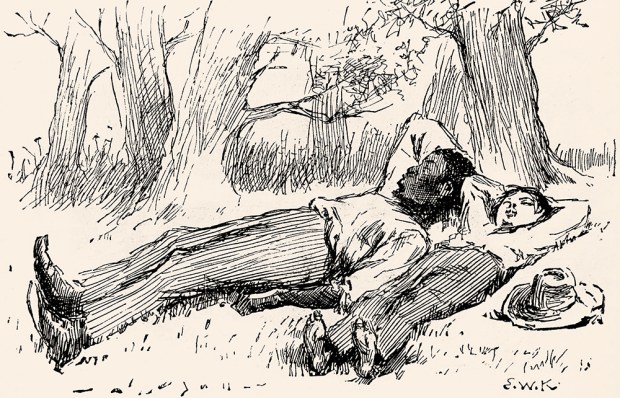There is more than one way to read the title of Mona Simpson’s seventh novel Commitment, a multigenerational family saga set mainly in California in the 1970s and 1980s. There is the ‘hospital commitment’ Diane Aziz, a single mother of three teenage children, needs after sinking into a deep depression shortly after her eldest, Walter, starts at UC Berkeley. Then there is the commitment Diane’s children show to their mother – and to one another, as they struggle through life, love and loyalty to each other while hoping Diane will one day leave her hospital compound. And there is also the deeper commitment between Simpson, who was born in Wisconsin but grew up in Los Angeles, and the themes she has spent a lifetime exploring: mental health, estranged families and the complications of parenthood.
It’s odd that Simpson isn’t better known in Britain, given that in the US she’s up there with Anne Tyler and Barbara Kingsolver when it comes to great chroniclers of American families. Her story ‘Lawns’ was one of 40 immortalised by Lorrie Moore in 100 Years of the Best American Short Stories. And Simpson’s own family story is dramatic. She was 25 when she discovered she had an estranged brother. His name? Steve Jobs.
In Commitment, as elsewhere, she writes from experience. Her father returned to his native Syria when she was very young, and her mother suffered from poor mental health and didn’t get any help. Simpson, who is 66, says she wrote this book to explore how life might have been different if her mother had received help. But this was an era when people only whispered about mental health, and never in public. As Lina, Diane’s middle child, puts it:
Mother cried too much. Her shoulders curled. Her face lost its order. What illness was that? Not one the world would count. Defeat, surrender: those were not illnesses, exactly; they were afflictions people blamed you for.
Diane’s illness anchors the novel, which is split into six parts, shifting, somewhat arbitrarily, between Walter, Lina and their younger brother Donnie’s perspectives. Simpson has an eye for succinct observations. When Walter, who gets the bulk of our attention, returns home from college for Christmas after Diane has been committed to hospital, everything feels wrong in the family’s rented bungalow. ‘The next morning, Lina and Donnie looked like themselves, only less good versions.’
Despite the medical emergency underpinning the narrative, this is a gentle book that lacks the fiery intensity of Simpson’s first novel, Anywhere But Here, about another troubled mother and her embattled daughter who leave Wisconsin for California. But neither life nor literature need be showy, and Simpson sums up what she wants us to remember with a haiku by Bashō that Walter reads at the novel’s end:
An autumn night
Don’t think your life
Didn’t matter.
Got something to add? Join the discussion and comment below.
Get 10 issues for just $10
Subscribe to The Spectator Australia today for the next 10 magazine issues, plus full online access, for just $10.
You might disagree with half of it, but you’ll enjoy reading all of it. Try your first month for free, then just $2 a week for the remainder of your first year.














Comments
Don't miss out
Join the conversation with other Spectator Australia readers. Subscribe to leave a comment.
SUBSCRIBEAlready a subscriber? Log in